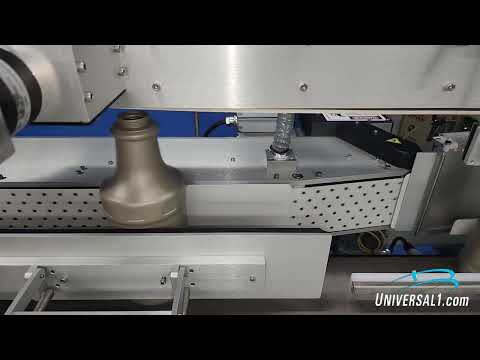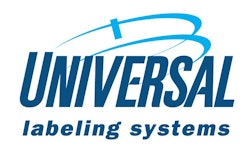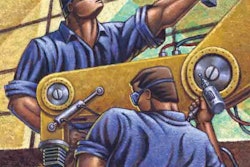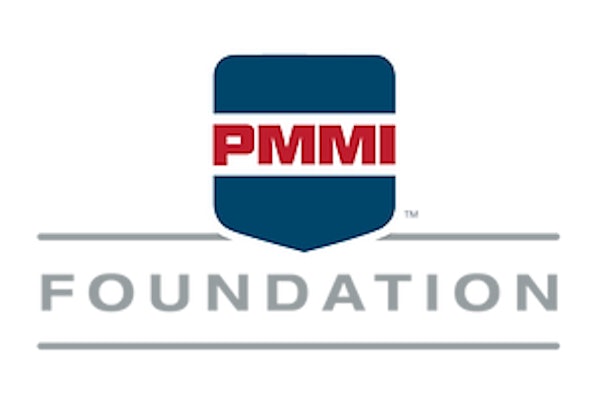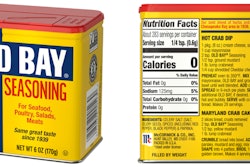WD-40 Co. is a classic example of today’s “lean product manufacturer” that essentially isn’t a manufacturer at all. The San Diego, CA-based company owns the No. 1 or No. 2 brands in the household lubricants and cleaners categories in which it competes, but its products are produced and packaged almost entirely outside the company.
Andrew Maynard, senior purchasing manager, sums up the approach this way: “Our company is not about buying components. We focus on sourcing materials and services internally while leveraging the purchasing departments of our contract manufacturers. We buy finished goods from our contract packagers and sell them to retailers.”
This approach has enabled WD-40 Co. to grow from a one-product marketer its flagship WD-40 brand of lubricant—to nearly a dozen brands of household products distributed in more than 160 countries without a single packaging line of its own.
By outsourcing the filling, packaging, and logistics functions, WD-40 Co. is able to focus on its core mission of developing and acquiring brands that deliver a unique high value to consumers and that can be distributed across multiple trade channels. The company is also tightening its distribution practices to reduce costs and improve the profitability of its brands.
The filling and packaging of WD-40 Co.’s products is a seamlessly integrated process between co-packers and suppliers in which roles are clearly defined. Vendors’ roles and influence are also expanding in areas such as materials selection and package design in support of the marketing department’s efforts to pair the right product with the right job in consumers’ homes.
“We’ve really started looking at the extra value that co-packers can bring to WD-40 Co.,” Maynard says.
WD-40 Co. brands include WD-40 and 3-IN-ONE Oil, Lava and Solvol heavy-duty hand-cleaning products, six hard-surface cleaners and automatic toilet bowl cleaners sold under the X-14 brand, 2000 Flushes automatic toilet bowl cleaner, Carpet Fresh and No Vac rug and room deodorizers, Spot Shot aerosol and liquid carpet stain removers, and 1001 brand carpet and household cleaners and rug and room deodorizers. The sole brand in which WD-40 Co. has an active hand in manufacturing is its WD-40 lubricant. The company mixes the super concentrate in San Diego and then sends it to its aerosol co-manufacturing plants, where additional ingredients are blended with the concentrate into the formula prior to packaging.
Because WD-40 Co. doesn’t operate any production lines, it has assembled a network of 12 filling and packaging sites across the nation to act as its “manufacturing department.” These include seven aerosol packers, two liquid fillers, one powder-filling facility, one tablet-making plant, and one bar-soap factory.
How the process works
Maynard works with a team of three planners at WD-40 Co. who direct the company’s use of fillers and packagers. The planners focus primarily on putting the right inventory in the right place at the right time.
“We instruct our contract packagers on what finished goods we’re going to need in the coming weeks. On average, our packers are shipping our retail orders within three days from the time we receive a purchase order from our customer,” Maynard says.
The first step in the fulfillment process is collaborative forecasting. Once the inventory plan is created, the company creates a purchase order for finished goods that it needs co-packers to produce, based on the company’s sales forecasts.
The co-packers are informed of the types of components a given packaging project will require. Under WD-40 Co.’s direction, co-packers source and procure the raw materials and convert them into packaging. Sometimes, they assist WD-40 Co.’s internal staff on package design.
X-14 brand in action
“One important area that the role of our co-packers continues to expand is in new product and packaging development,” Maynard says. “With any of our development work, it is important for us to involve our packagers and suppliers early in the process to identify any potential issues and opportunities upfront so that we can address them in the design phase.
“When we received the initial design concepts from marketing for the custom blow-molded bottle for X-14, I knew that we were going to challenge both the blow molder and co-packers. We presented the concepts to each of the affected parties in the value stream, sometimes with little more than a sketch, to understand the implications of each change that we made. After many weeks of collaboration, we ended up with a true balance between aesthetics and ‘manufacturability.’
“As a result of the collaboration, Patrick Products (www.patrickproducts.com) was able to complete the mold and deliver parts off of the model early, with almost no complications. Further, our co-packers were able to bring the new component on line quickly, making up for some lost time in the design phase.”
This approach enables WD-40 Co. to concentrate on product development. Senior management describes the product development effort as seeking to “change the paradigm” for how consumers use household cleaning products. The objective is to make package design central to delivering each brand’s value.
The restaging of WD-40 Co.’s X-14 product line of bathroom cleaning products provides insights into how the integrated supply chain helps the company create better products. The WD-40 Co. wanted to reposition the X-14 brand as “The Bathroom Expert” after research indicated that consumers believe bathrooms have distinct cleaning challenges and want products that simplify the task.
WD-40 Co. redesigned packaging for the X-14 brand, which includes the Mold & Mildew Stain Remover, Daily Shower Cleaner, and Automatic Toilet Bowl Cleaner. Two recent additions to the brand are Foaming Bathroom Cleaner and Bathroom Cleaner.
Some of the products, such as the Mold & Mildew Stain Remover, Daily Shower Cleaner, and Bathroom Cleaner, are now marketed in a distinctive custom trigger-spray bottle. The company wanted a distinguishable shape as part of the redesign, so an early consideration was developing a bottle design with shelf presence and that could run efficiently on lines that WD-40’s existing co-packers operate.
“We have decentralized the tactical buying functions to the co-packers, and we allow our co-packers to source the raw materials under our direction when we feel that we do not have a strategic advantage by sourcing it ourselves,” Maynard says.
The co-packer on the X-14 project introduced WD-40 Co. to Patrick Products, which later won the bid to build the brand’s custom bottle. WD-40 Co. selected a pressure-sensitive label from
WS Packaging (www.wspackaging.com) and a polypropylene trigger sprayer from Continental AFA (www.continentalafa.com).
WD-40 Co. employed the services of a packaging engineer in creating the custom bottle to develop the distinctive look and to execute the detail work in the design. The brand’s X-14 signature X is embossed into the mold in the bottle’s neck.
However, the label design also posed a packaging challenge that demonstrates what can be accomplished through supply chain collaboration. WD-40 Co. marketers wanted the label design to show consumers that products in the X-14 line get their bathrooms sparkling clean. Working with WS Packaging, WD-40 Co. designers achieved the goal by printing on a holographic surface. A base coat of white was laid over the holographic label surface except for the area of the label containing the sparkles. Those areas not covered allow the holographic surface to shine through.
Activities downstream
For X-14 and all other products across the WD-40 Co. lineup, packaging materials go directly from suppliers to the company’s co-packing facilities, which also have the ability to fulfill orders on the company’s behalf.
“Generally, the fewer touches you have, the more cost-effective it is,” Maynard says. “Prior to the acquisition of our household brands, we were shipping 100% of our retail customer orders directly from our aerosol co-packers. While we now operate several distribution centers, we have maintained this model of direct distribution to customers where it makes sense.”
With a three-day window from order placement through shipping, co-packing activities all need to be executed on a tight schedule. As products come off the production lines, co-packers deliver them either directly to retailers or to WD-40 Co. distribution facilities in Los Angeles, CA, Memphis, TN, and Cranbury, NJ.
As WD-40 Co.’s approach to contract packaging demonstrates, a good relationship with external packagers starts with selecting a company that understands your product needs, branding goals, and timeline requirements. Contract packaging can open doors to specialized technologies and designs that produce packaging in support of business objectives.
The author, Jim George, is the editor-in-chief of Contract Packaging magazine.


